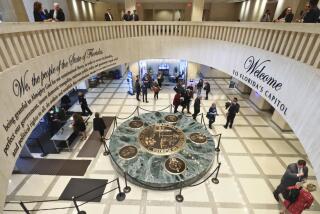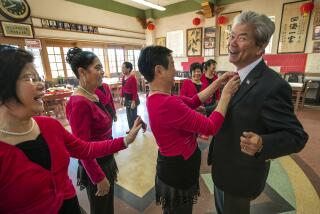Sorry, Good Luck Isn’t in the Bylaws
- Share via
Linda and Chi-hwa Hong felt as though they had been plunged into “The Case of the Mysterious Banner.”
The Hongs, who take care of a friend’s rental condo unit in a building in Alhambra, were mystified by a warning notice they received more than a year ago from the complex’s property management company telling them to remove a banner from the building.
Trouble was, they searched high and low but could find no trace of a banner.
After months of confusion, they finally uncovered the solution to the mystery: strips of red paper called chuen lien pasted around the door of the condominium unit.
What the Hongs, who moved from Taiwan to Alhambra five years ago, considered chuen lien, or Chinese good luck paper, the condominium board considered “a banner,” strictly prohibited by the complex’s bylaws.
Last week, after months of controversy and the assessment of more than $200 in fines, the matter was settled when the board agreed to revoke the fines and drop the issue.
But the case highlights communications clashes and cultural misunderstandings that often confront immigrants and their neighbors in the San Gabriel Valley.
The couple said they were puzzled by the notice, accompanied by a demand that they pay a $25 fine. Linda Hong checked the word banner in an English-Chinese dictionary and asked her American friends what it meant. They told her it is like a flag.
“We looked everywhere,” Linda Hong said. “I even went up on the roof.”
But the Hongs said they found only chuen lien, which Chinese families traditionally hang on door frames to bring good luck.
A chuen lien typically features auspicious wishes such as “God Bless This Family,” and “May Peace Be With You.”
“I would never have thought it was the chuen lien, “ Linda Hong said.
More to Read
Sign up for Essential California
The most important California stories and recommendations in your inbox every morning.
You may occasionally receive promotional content from the Los Angeles Times.













